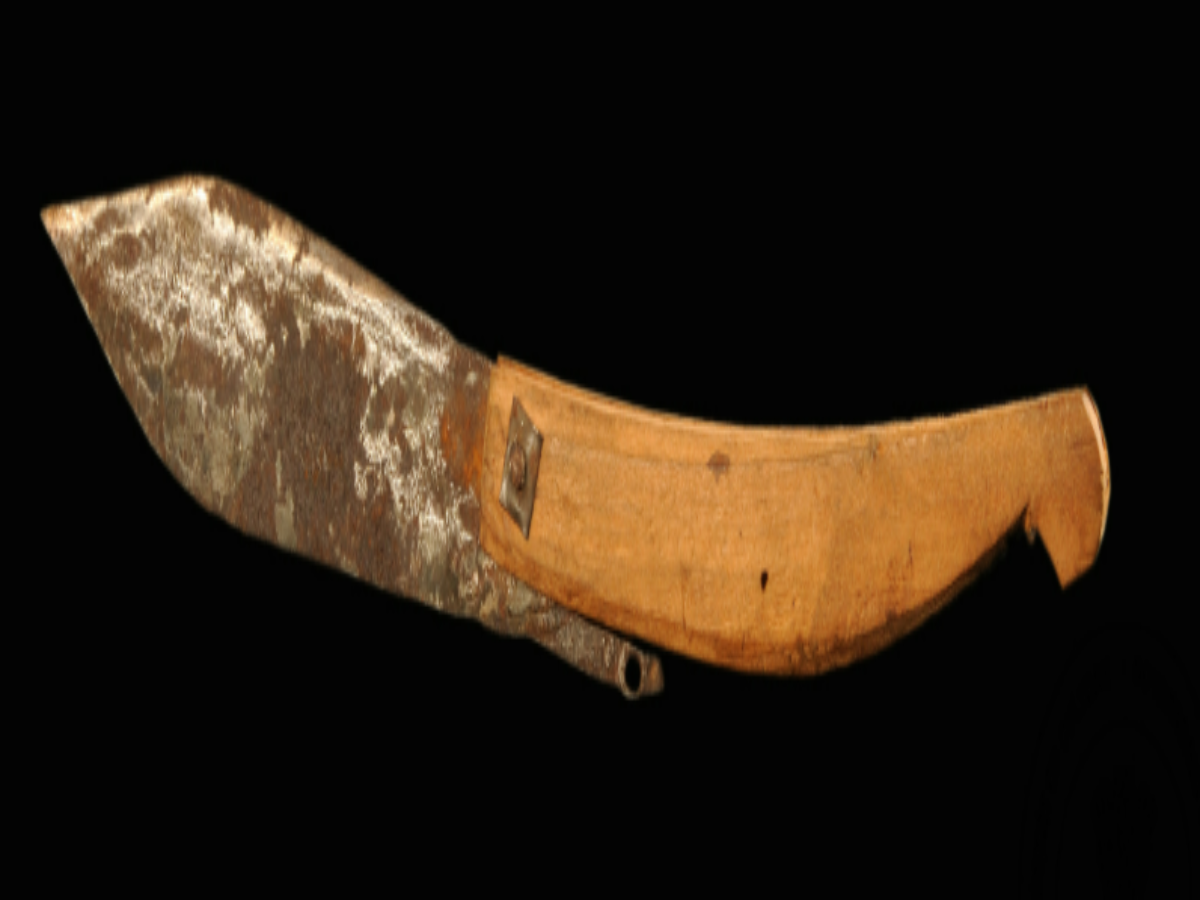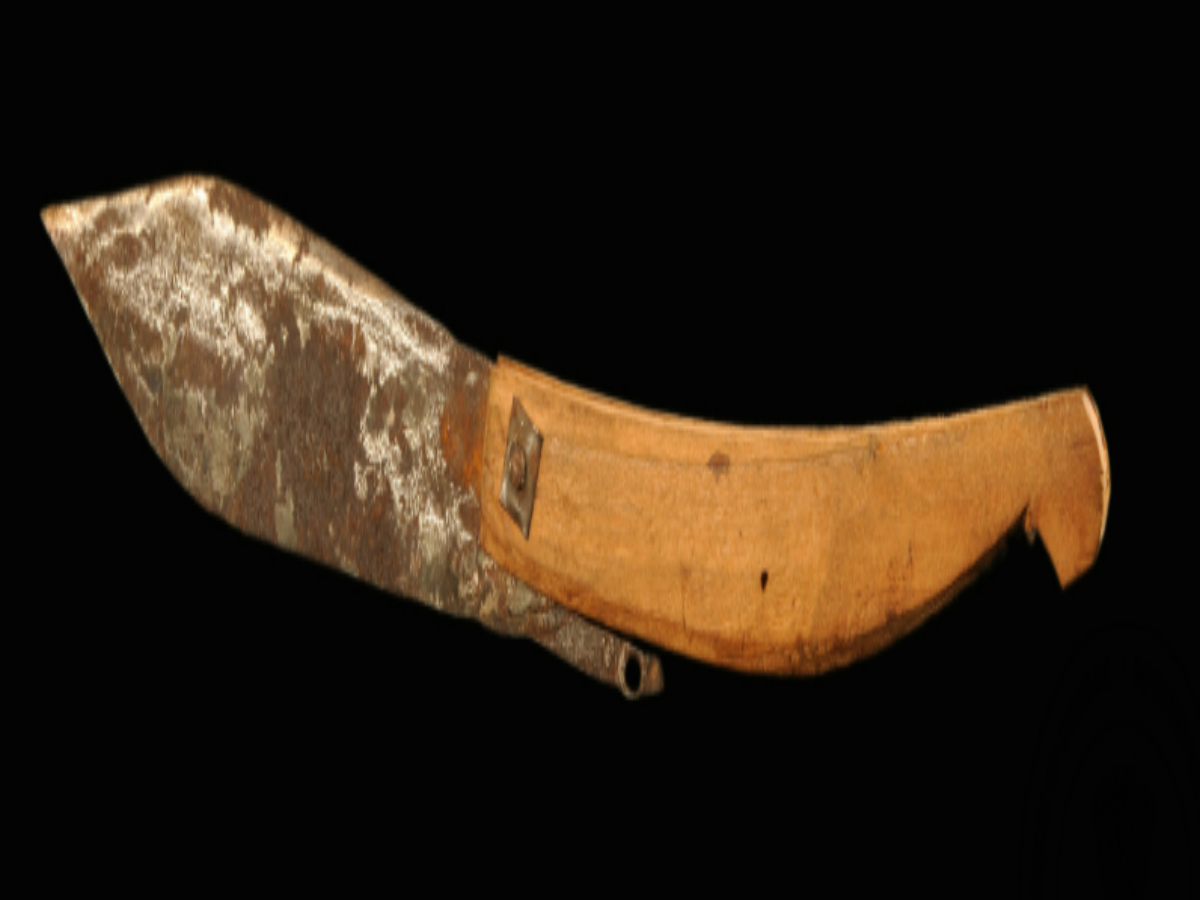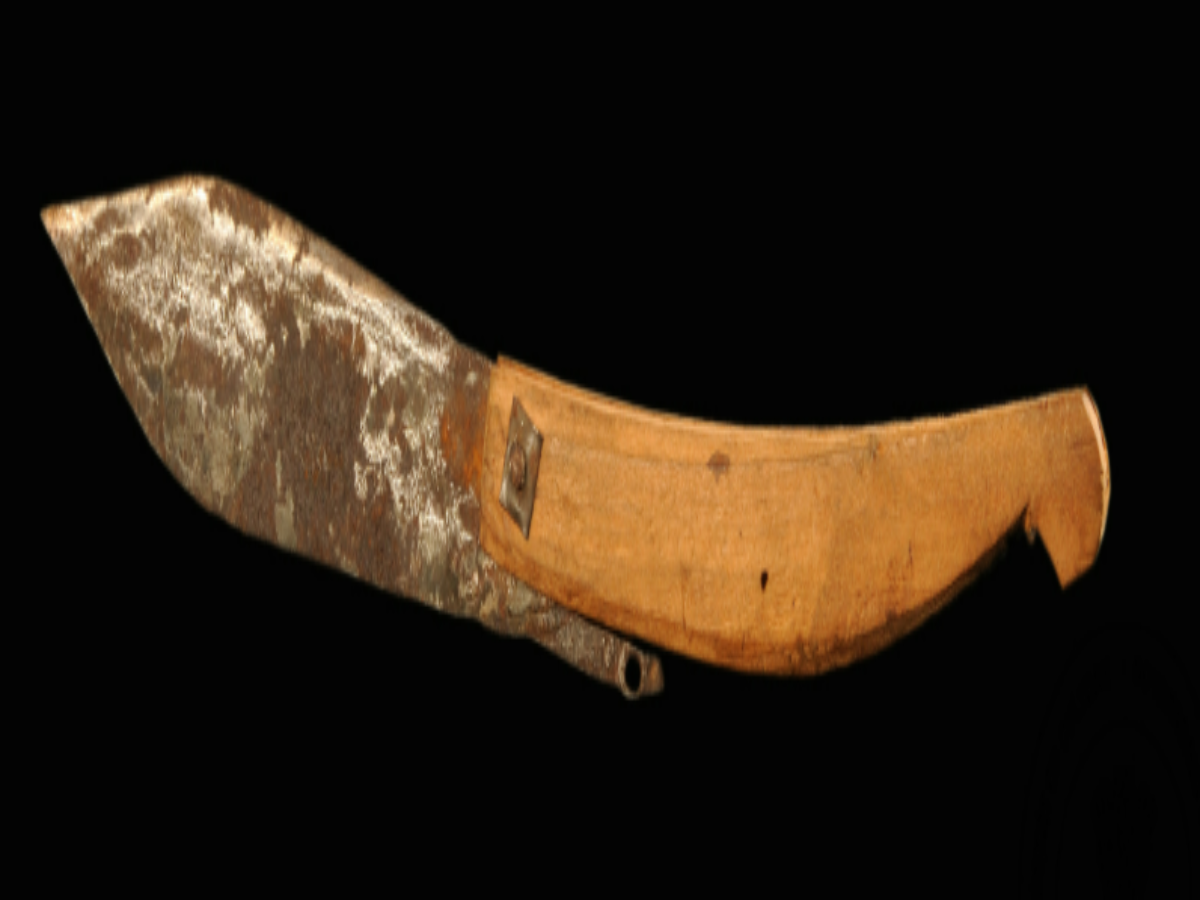State
Tribe Name
Art Type
short description
The Angami Naga tribe, which mostly lives in and around Kohima in Nagaland, are known to still possess rich cultural traditions that include craftsmanship and distinctive weaponry. Among such tools of practical use, the traditional folded knife occupies a special place as the most flexible tool to be used from daily life to ceremonial contexts. Stylishly designed, this small knife folds up for safe carry in a pocket, or tucked into the waist. The handle is fitted with smooth, polished wood that is crafted both for grip and visual simplicity. The wooden handle balances out the metallic blade, demonstrating the Angami people's profound appreciation for functionality in design.
Thumbnail

Filter Postion
Left
Filter Background
Off
Theme
Filter Header Image

content
Image

description
The Angami Naga tribe, which mostly lives in and around Kohima in Nagaland, are known to still possess rich cultural traditions that include craftsmanship and distinctive weaponry. Among such tools of practical use, the traditional folded knife occupies a special place as the most flexible tool to be used from daily life to ceremonial contexts. Stylishly designed, this small knife folds up for safe carry in a pocket, or tucked into the waist. The handle is fitted with smooth, polished wood that is crafted both for grip and visual simplicity. The wooden handle balances out the metallic blade, demonstrating the Angami people's profound appreciation for functionality in design.
The blade possesses a sharp pointed tip with one sharp edge that is used for precision work such as cutting and slicing and even small-scale carving. The other side of the blade is kept dull to ensure more safety and stability during its use. A unique feature of this knife is the long, tail-like projection extending from the rear of the blade. The tail may have different functions: perhaps as a locking device, or as a balance weight, or maybe as a mere aesthetic component derived from tribal symbolism. This folded knife is much more than a tool in its own right; it stands for the ingenious abilities and artistic talent of the Angami Naga people. Used in agriculture, in preparing food, and indeed sometimes performing ceremonial rites, this knife contrasts the tribe's practicality and traditions.
Image Mode
landscape
promoted
On
Verified
Off
